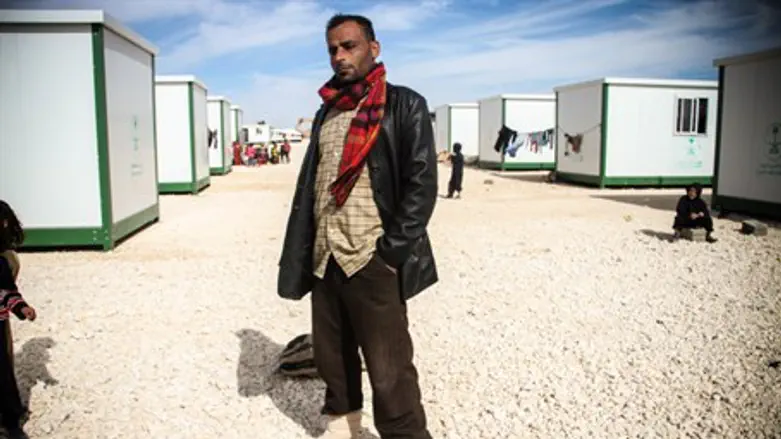
Senior officials in the United States on Tuesday defended their program for accepting Syrian refugees and insisted that screening was stringent enough to prevent letting extremists slip into the country.
President Barack Obama's government attempted to brush aside threats from state governors to block the resettlement effort, arguing that it is a federal policy and legitimate refugees must enjoy freedom of movement.
On Monday, Alabama and Michigan announced they would block the program to resettle Syrian migrants within their borders, citing major security concerns after Friday's wave of Islamic State (ISIS) terror attacks in Paris that left at least 129 murdered.
Those states were followed by the governors of 22 other states who announced they will not accept Syrian refugees. They were joined by Congressman Paul Ryan, the Republican speaker of the House of Representatives.
The State Department subsequently stressed that the Obama administration is not backing off its plans to admit 10,000 Syrian refugees into the United States in 2016.
On Tuesday officials admitted that, after fears stirred by last week's massacre in Paris, they are now wary of losing the support of the public and Congress for America's four-decade policy of welcoming refugees.
A senior administration official, briefing reporters on condition of anonymity, called the program "a proud American tradition that not only saves lives but also enriches our country and our nation."
But it was not clear what practical effect opposition at the state level would have on a federal program that the president has defended passionately.
"This is a federal program carried out under the authority of federal law and refugees arriving in the U.S. are protected by the Constitution and federal law," the senior official told reporters, according to the AFP news agency.
Once accepted for resettlement the refugees can apply for permanent residence and enjoy freedom of movement within the United States, although some of their resettlement support may be tied to a location.
While remaining the world's biggest destination for refugees, the United States has been slow to respond to the worsening civil war in Syria, accepting a little over 2,000 refugees in the first four years of fighting.
Obama has now promised to take 10,000 in the fiscal year that began on October 1, chosen from families vetted by the UN refugee agency in camps in Turkey, Jordan, Egypt and in the near future Lebanon.
After being chosen by the United Nations as being particularly vulnerable due to their health or economic circumstances, the candidates receive 18 to 24 months of screening by security and intelligence agencies.
American officials boast that these checks make them the most thoroughly vetted of any category of traveller heading to the United States, but public concerns remain that Islamist extremists may be hiding in their ranks.
And, in the wake of the Paris attacks, opponents of the scheme argue that speeding arrivals as Obama has promised will lead to a loosening of security standards -- a claim dismissed by the administration's experts.
A second senior official, again speaking on condition of anonymity, said that the U.S. already screens millions of travellers and "can certainly scale" the relatively smaller number of Syrian refugees.
"It will require us adapting and flexing, but I think it's well within our capacity," he said.
AFP contributed to this report.